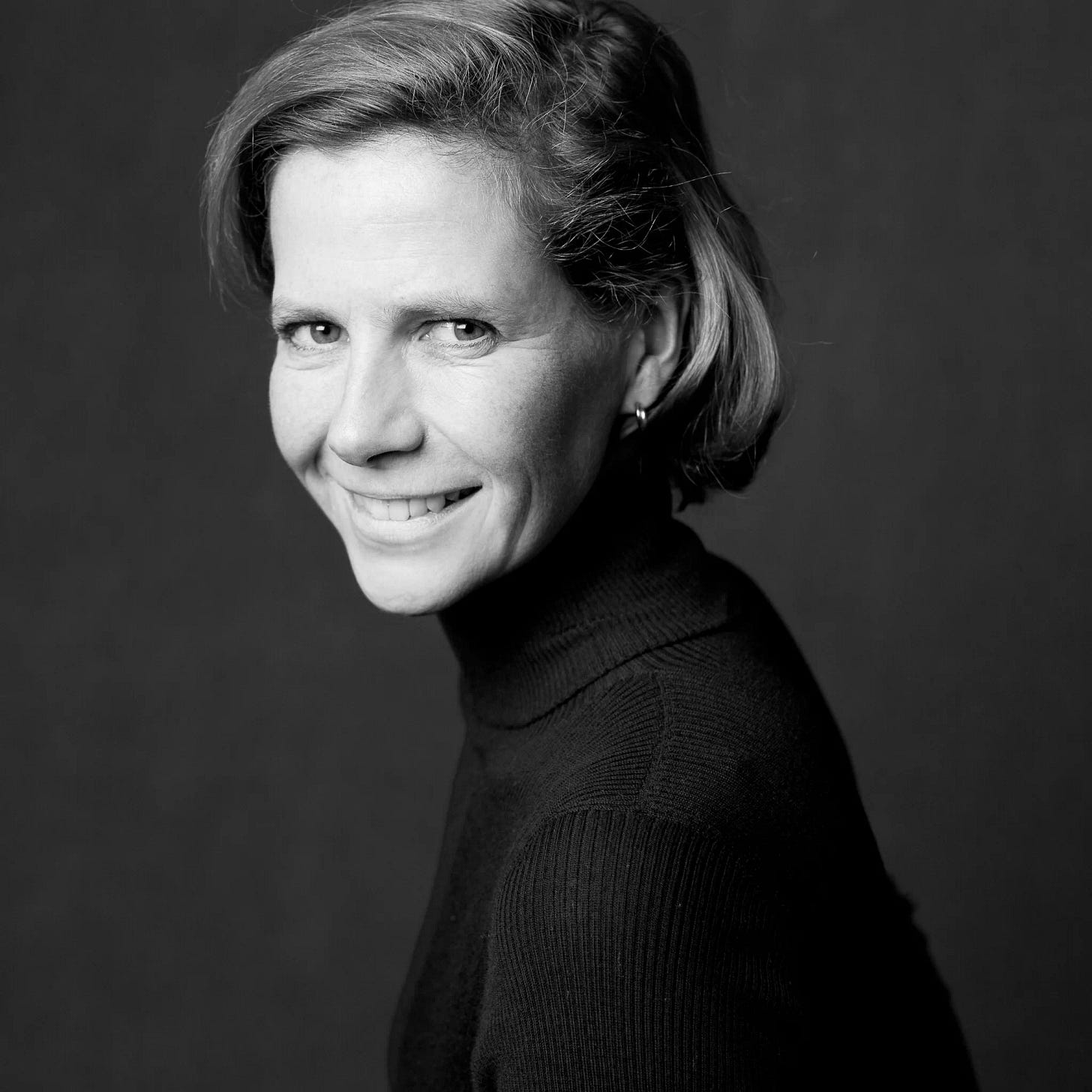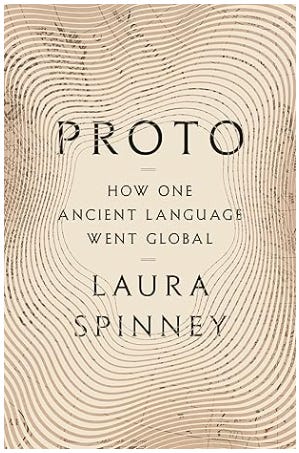Laura Spinney: rise of the proto-Indo-Europeans
Razib Khan's Unsupervised Learning
Release Date: 05/17/2025
 Cesar Fortes-Lima: the Fulani out of the Green Sahara
Cesar Fortes-Lima: the Fulani out of the Green Sahara
Razib Khan's Unsupervised Learning
On this episode of Unsupervised Learning Razib talks to human geneticist about his paper from earlier this year, . Fortes-Lima has a Ph.D. in Biological Anthropology, and his primary research areas include African genetic diversity, the African diaspora, the transatlantic slave trade, demographic inference, admixture dynamics and mass migrations. Formerly a postdoctoral fellow in the Department of Human Evolution at Uppsala University, Forest-Lima is now an in genetic medicine at the Johns Hopkins University. He is also a returning guest to the podcast,...
info_outline Jack Despain Zhou: in defense of tracking
Jack Despain Zhou: in defense of tracking
Razib Khan's Unsupervised Learning
On this episode of Unsupervised Learning Razib talks to , executive director of the (CEP). Despain Zhou is a graduate of Western Governors University, and is completing his J.D. at Temple University. A former cryptographic analyst for the US Air Force, Despain Zhou is better known as a former producer for Jesse Singal and Katie Herzog at under the pseudonym . Despain Zhou’s mission with CEP is to push for individualized learning programs “where every student can advance as far and as fast as their curiosity and determination will take them.” In...
info_outline Nikolai Yakovenko: the $200 million AI engineer
Nikolai Yakovenko: the $200 million AI engineer
Razib Khan's Unsupervised Learning
On this episode of Unsupervised Learning, in the turning anti-Semitic following a recent update, Razib catches up with about the state of AI in the summer of 2025. Nearly three years after their first conversations on the topic, the catch up, covering ChatGPT’s release and the anticipation of massive macroeconomic transformations driven by automation of knowledge-work. Yakovenko is a former professional and research scientist at Google, Twitter (now X) and Nvidia (now the first $4 trillion company). With more than a decade on the leading edge ,...
info_outline David Van Ofwegen: a peripatetic philosopher across Eurasia's antipodes
David Van Ofwegen: a peripatetic philosopher across Eurasia's antipodes
Razib Khan's Unsupervised Learning
Today on Unsupervised Learning Razib talks to David van Ofwegen, a philosophy teacher based in Thailand. Razib and Ofwegen first met by chance while he was traveling in the US in 2003. A Dutch national, educated at the University of Leiden in the Netherlands and then the University of Hawaii, specializing in the philosophical underpinnings of Social Darwinism, Ofwegen has been based in Thailand for the last 15 years. Razib and Ofwegen’s initial connection was over their shared interest in the turmoil in Europe post-9/11 and the 2002 assassination of the right-wing Dutch politician...
info_outline Claire Lehmann: after the Intellectual Dark Web
Claire Lehmann: after the Intellectual Dark Web
Razib Khan's Unsupervised Learning
On this episode of Unsupervised Learning Razib talks to returning guest . Lehmann has an undergraduate degrees in psychology and English from the University of Adelaide. She was enrolled in a graduate program in psychology, but left it after becoming disillusioned with moral relativism, she went on to found the online magazine Quillette to reflect a more traditionally pro-reason and pro-evidence-based worldview. Within three years Lehmann was in 2018 in The New York Times as a major figure within the nascent “intellectual dark web.” Razib and...
info_outline Nathan Cofnas: Judaism's group evolutionary strategy and hereditarianism defended
Nathan Cofnas: Judaism's group evolutionary strategy and hereditarianism defended
Razib Khan's Unsupervised Learning
On this episode of Unsupervised Learning Razib talks to philosopher of science , whose specialty is biology and ethics. An American, Cofnas is currently a Leverhulme Early Career Fellow in the Faculty of Philosophy at the University of Cambridge. He earned his Bachelor of Arts in Philosophy from Columbia University, and his doctorate in philosophy at the University of Oxford. His Substack is . First, they discuss Kevin MacDonald’s theory of Judaism as a group evolutionary strategy, which is outlined in his three-book series, , and . Cofnas reviews his...
info_outline Steve Hsu: China's inevitable rise and America's confused response
Steve Hsu: China's inevitable rise and America's confused response
Razib Khan's Unsupervised Learning
Today Razib talks to repeat Steve Hsu about China, a topic with so many currently relevant dimensions gIven the PRC’s clear emergence as an economic, military and political rival to the US. Hsu is a Caltech‑trained theoretical physicist who migrated from black holes to big data, co‑invented privacy tech at SafeWeb, helped found the biotech company Genomic Prediction, all while remaining a prominent public voice on genetics, intelligence and the future of human enhancement. He is also a professor of physics at Michigan State, and from 2012-2020 was vice president for research...
info_outline David Gress: Plato and NATO 25 years later
David Gress: Plato and NATO 25 years later
Razib Khan's Unsupervised Learning
Today Razib talks to David Gress, a Danish historian. The son of an American literary scholar and a Danish writer, he grew up in Denmark, read Classics at Cambridge, and then earned a Ph.D. in medieval history from Bryn Mawr College in the US in 1981. During a fellowship form 1982-1992 at Stanford University’s Hoover Institution, he published on Cold‑War strategy, German political culture, and Nordic security. He has been a visiting fellow and lecturer at Gonville & Caius College, Cambridge, fellow at the Danish Institute of International Affairs, an assistant professor of...
info_outline Ethan Strauss: sports and the end of the culture wars
Ethan Strauss: sports and the end of the culture wars
Razib Khan's Unsupervised Learning
On this episode of the Unsupervised Learning podcast, Razib welcomes back , a writer who has covered sports and culture for the past decade, including in the book . More recently his writing is to be found at his Substack, , which is notable for offering a candid take on the cross-pollination between broader culture and athletics, notably in the piece . Strauss and Razib first discuss professional sports and the different representation of various nationalities. Strauss recounts the generational attempt by the NBA to get Chinese representation to gin up a lucrative rivalry,...
info_outline Manvir Singh: the shamanic roots of all religion
Manvir Singh: the shamanic roots of all religion
Razib Khan's Unsupervised Learning
Today Razib talks to about shamanism, religion and anthropology. Singh is an assistant professor of anthropology at the University of California, Davis. An and , he is also now a regular contributor to The New Yorker. His academic interests lie in explaining why most human societies, from preliterate foragers to urbanites, develop cultural phenomena like “witchcraft, origin myths, property rights, sharing norms, lullabies, dance music, and gods.” He just came out with his first book, . First Razib asks what Singh exactly means by shamanism, and whether it...
info_outlineToday Razib talks to Laura Spinney, Paris-based British author of the forthcoming Proto: How One Ancient Language Went Global. A science journalist, translator and author of both fiction and non-fiction, she has written for Nature, National Geographic, The Economist, New Scientist, and The Guardian. Spinney is the author of two novels, Doctor and The Quick, and a collection of oral history in French from Lausanne entitled Rue Centrale. In 2017, she published Pale Rider, an account of the 1918 flu pandemic. She also translated Swiss writer Charles-Ferdinand Ramuz's novel Derborence into English. Spinney graduated with a Bachelor of Science degree in Natural Sciences from Durham University and did a journalism residency at Berlin’s Planck Institute.
First, Razib asks Spinney how difficult it was to integrate archaeology, linguistics and paleogenetics into her narrative in Proto, which traces the rise and proliferation of Indo-European languages from its ancestral proto-Indo-European. She talks about why this was the time to write a book like this for a general audience, as paleogenetics has revolutionized our understanding of recent prehistory, and in particular the questions around the origin of the Indo-Europeans. Razib and Spinney talk about various scenarios that have been bandied about for decades, for example, the arguments between linguistics and archaeologists whether proto-Indo-European was from the steppe or had an Anatolian homeland, and the exact relationship of the Hittites and their language to other Indo-European branches. They also delve into how genetics has helped shed light on deeper connections between some branches, like Balto-Slavic and Indo-Iranian, or Greek and Armenian. Spinney also addresses how writing a book like Proto involves placing fields like historical linguistics and archaeology with charged political associations in their proper historical context


